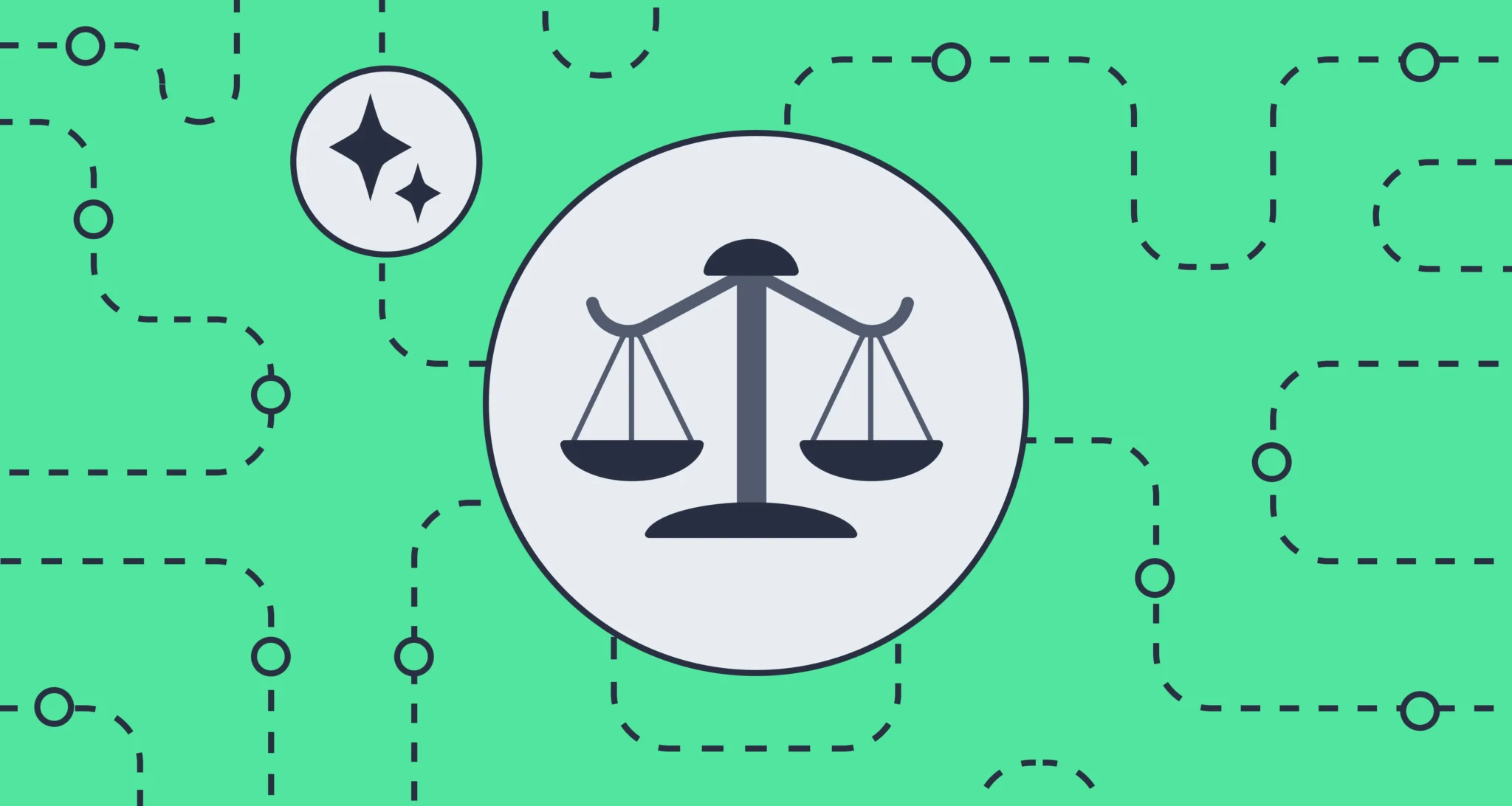 Simona Ondrejkova, CFP
Simona Ondrejkova, CFP
How AI Can Be Used in Your Law Firm

For busy attorneys, finding ways to boost efficiency can elevate client service and free up more hours in your day—and leaning on carefully chosen tools may help you achieve that. With the emergence of artificial intelligence (AI) and its practical uses in improving efficiency across so many industries, you may be wondering how—if at all—you might use it in your law practice.
From removing tedious administrative tasks to speeding up case analysis and research, the latest AI technologies present many opportunities to help solo practitioners and large law firms maximize productivity while improving client outcomes. The use of AI in law, however, can also introduce a host of ethical questions. To ensure that these tools are being used in a way that aligns with the highest professional standards, it’s essential to keep integrity and sound human judgment top of mind any time we consider using AI in the practice of law.
Here, we’ll explore the intersection of artificial intelligence and law, sharing some ideas on how AI could be used in a law firm while sharing some specific AI tools for getting started. We’ll also discuss potential pitfalls involved in using AI.
Keep in mind that Vanilla does not endorse and is not affiliated with any software listed in this article; software named in this article are simply examples. As we have not done a full evaluation of all of the legal-related AI software on the market, we encourage you to do your own thorough research when bringing any software into your firm. The software examples mentioned in each category are based on reviewing software directories and comparison sites for AI software solutions. This blog post also does not cover all the risks involved in using AI.
What is AI? And what are some common types of AI for lawyers?
Artificial intelligence refers to systems that simulate human-like reasoning processes and behaviors such as learning and problem-solving. It falls into two primary categories, general and narrow.
General AI (often referred to as AGI or artificial general intelligence) is the sort you may be familiar with from movies and science fiction literature. It’s capable of learning almost anything using large data sets and can extrapolate that information out into seemingly unique conclusions.
In contrast to something like an algorithm or a script, General AI can be interacted with as if it were a person you were having a conversation with. It is only limited by the constraints placed upon it by its programmers.
Narrow AI (also called weak AI), on the other hand, is tailored for specific tasks like virtual personal assistants (e.g., Siri or Alexa), language translation algorithms, image recognition software, and recommendation systems used by streaming platforms. In the legal domain, this focused AI can streamline operations by simplifying labor-intensive and monotonous tasks such as document review or case law research.
Another important term to know when dealing with this topic is generative AI, which refers to AI that produces a work product. AI in this category creates content based on patterns and structures learned from existing data. An attorney may potentially lean on this type of AI for drafting standardized legal documents. The huge caveat to keep in mind, however, is that anything created by such software uses data from human-generated original works. The results can contain errors and biases, and therefore it’s important to carefully review and edit anything sourced in this way.
What are the benefits of AI for lawyers?
By automating routine tasks and streamlining workflows, AI can help law firms reduce operational costs, boost productivity, and deliver legal services more efficiently. Not only does AI allow attorneys to spend more time with clients (or acquiring new clients), it can also save time for paralegals and assistants in their administrative tasks, document review, and research.
Another benefit is that AI can help make more informed and objective decisions. By identifying patterns, trends, and insights within legal documents, case law, and regulatory frameworks, AI-powered analytics and predictive modeling can provide perspectives that humans could overlook.
Because AI tools can quickly identify relevant precedents, statutes, and regulations, they can also expedite case resolution, resulting in happier clients, more referrals, and potential for increased revenue growth in your law practice.
5 types of AI tools for lawyers
Now that you have an idea of how AI can be used to increase efficiency in professional settings, let’s look at five specific ways that AI can be used in law firms:
- E-Discovery
- Research
- Automation
- Document management
- Litigation analysis
While there are many AI tools for each use case above, we’ve provided a couple of sample tools in each category based on their popularity in search engine rankings. Vanilla does not endorse any of these specific tools and we recommend that each individual does their own research to find an AI tool suited for their needs.
E-Discovery
E-Discovery AI tools can be helpful in efficiently managing emails, documents, databases, and even social media and web content. They can also help with building case narratives or summarizing depositions.
Here are some examples of e-Discovery AI tools:
- RelativityOne
RelativityOne is a cloud-based platform that provides a comprehensive suite of tools for legal professionals to manage the entire e-Discovery process, including AI-driven analytics for digital document review and centralized case management to keep your e-Discovery workflow organized. - DISCO
DISCO is another cloud-based analytic software focused on legal e-Discovery. It uses predictive coding to identify relevant documents to speed up the review process and provides visual insights into case data to aid in decision-making.
Legal Research
Legal research can often be one of the most time-consuming tasks when working on a case. AI tools that can dig through case law and statutes to find needed information can be a great time-saver in any law firm.
Here are a couple of AI legal research tools that you may find useful:
- ROSS Intelligence
ROSS Intelligence uses natural language processing to streamline the legal research process. It delves into extensive legal databases, offering quick and relevant insights into case law, statutes, and legal precedents so you have the most relevant legal information at your fingertips. - CoCounsel
CoCounsel is an AI legal assistant powered by ChatGPT-4. It’s designed to help you simplify tasks like document review, case analysis, or preparing for a deposition.
Automation
Automation AI tools take repetitive scheduled tasks off of your plate, leaving you free to focus on more pressing matters, like attending to your clients.
Consider AI automation tools like the ones below to help you automate tedious work like reviewing contracts:
- LawGeex
LawGeex is an AI tool for contract review and redlining. It helps you spot red flags in contracts while grasping the full contractual context to help you align with your specific stance.
- Kira Systems
Kira Systems specializes in contract analysis and supports you in reviewing extensive legal documentation. It extracts critical information from legal documents while helping you perform your due diligence in less time.
Document management
Document management AI tools can serve as a virtual assistant that helps you stay organized with your caseloads or even crafts documents for you.
Here’s an example of a document management AI tool for attorneys:
- NetDocuments
NetDocuments serves as a centralized repository for storing and managing documents and emails securely in the cloud. It lets you upload and organize legal documents while giving you and your team a seamless way to collaborate on editing and reviewing documents. - PlusAI
If you know the stress of creating last-minute presentations for client meetings, PlusAI might be a great addition to your toolbox. This AI-powered presentation maker automates slide creation with customizable templates, AI-generated images and charts, and seamless integration into Google Slides or Powerpoint.
Litigation analysis
Litigation analysis AI extracts valuable insights from legal documents to help you make more strategic decisions as you prepare cases for your clients.
- LegalMation
LegalMation helps with the document preparation process by generating responsive pleadings, discovery requests, and discovery responses while incorporating jurisdictional requirements. It can generate this data while incorporating the attorney’s unique style, formatting preferences, and response strategy. - Lex Machina
Lex Machina is an AI-powered legal analytics tool that analyzes vast amounts of case data to provide valuable insights into judges, opposing counsels, and legal strategies. It also provides a comprehensive summary of past cases and their outcomes to aid in important litigation decisions.
Potential implications of misusing AI in legal practice
It should probably go without saying that AI was never meant to be used as a substitute for actual legal work. While many attorneys who use AI are honest people who do their due diligence, there have already been several cases of attorneys who have ruined their professional careers by misusing AI.
One Colorado attorney, for example, was suspended for using ChatGPT to draft a motion which included several fake legal cases.
Judges are constantly looking for the best ways to deal with the use of artificial intelligence in law. According to the Washington Post, “some are banning the use of AI in their courtroom. Others are asking lawyers to sign pledges to disclose if they have used AI in their work.” The Florida Bar is even proposing that clients may have to give their attorneys permission to use AI to work on their case.
Additionally, it’s critical to research and understand the many privacy, ownership/IP, and security concerns related to using AI in the practice of law. The potential misuse of AI in the industry highlights the importance of not relying on AI tools without proper human oversight.
The future of AI in law
Goldman Sachs research shows that AI is projected to automate up to 44% of legal work in the future. This could allow attorneys who embrace the ethical use of AI tools in their law firm to scale their practice to new heights while offering greater levels of service to their clients.
Addressing the concern of legal AI software replacing lawyers, however, it’s clear that there will never be such a thing as a reliable AI attorney. The legal industry is built upon a foundation of sound human judgment, professionalism, and integrity.
Attorneys who adhere to these principles won’t have to worry about being replaced by AI as long as they do their work honestly and genuinely care about solving cases for their clients while upholding the highest professional standards.
Learn about VAI Chat, Vanilla’s AI-powered estate planning assistant, here.
Published: Mar 26, 2024
Holistic wealth management starts here
Join thousands of advisors who use Vanilla to transform their service offering and accelerate revenue growth.
